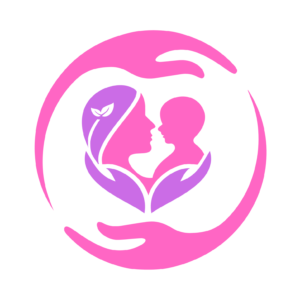Becoming a mother is often described as one of the most joyful experiences in a woman’s life. However, the postpartum period often brings emotional turmoil as well as physical recovery for many women, which is rarely discussed openly. As a gynecologist, I want to shed light on a condition postpartum depression (PPD) that affects far too many women in silence.
Postpartum Depression: What Is It?
Postpartum depression is more than just the “baby blues.” While it’s common to feel overwhelmed, tearful, or exhausted in the first couple of weeks after birth, PPD is a deeper, longer-lasting form of emotional distress that can develop anytime within the first year postpartum.
PPD does not make you an awful mother. It does not imply that you do not love your child. It means you’re human and you need support.
Symptoms of Postpartum Depression
Here are some of the key signs I advise my patients to watch for, whether in themselves or in someone they love:
1. Continual Sadness or a Low Mood
If you feel down almost constantly throughout the day, this may be more than just hormonal fluctuations.
2. A decline in enjoyment or interest
Things you used to enjoy i.e. hobbies, socializing, or even bonding with your baby, may no longer bring joy or satisfaction.
3. Sleep Difficulties
This isn’t just about waking up for night feeds. It’s important to pay attention if you can’t sleep even when your baby is sleeping or if you sleep too much and still feel tired.
4. Appetite Changes
Eating far less or more than usual, without intention, can be a sign of emotional distress.
5. Feelings of Worthlessness or Guilt
Thoughts like “I’m not a good mother” or “I can’t do anything right” can spiral quickly. These thoughts are symptoms, not truths.
6. Anxiety
Panic attacks, persistent worry about your baby’s health, and increased worry can all be signs of PPD, especially when they interfere with daily life.
7. Problems forming bond with the baby
You are not a failure just because you struggle to connect with your child. It is a common, painful sign of PPD that can get better with the right help.
8. Imaginations of Harming Oneself or Your Child
If these thoughts occur, it’s crucial to seek help immediately. You are not alone, and support is available.
Why It Is Frequently Missed
Many women don’t recognize these symptoms as depression. There’s societal pressure to “bounce back” quickly, to be grateful, happy, and glowing. But mental health after childbirth is just as important as physical recovery and ignoring it can delay healing.
As a gynecologist, I always emphasize that mental health screenings are not just formalities, they are lifelines. Never hesitate to bring up emotional concerns during follow-up appointments.
When to Seek Help
If you experience any of these symptoms for more than two weeks, or if they interfere with your ability to function day to day, please reach out to me or a healthcare provider. Talk to your OB/GYN, midwife, or a mental health professional. Treatment might include counseling, support groups, medication, or a combination.
A Final Word of Compassion
Dear mothers:
Your feelings are valid. Postpartum depression does not define you. It is a medical problem that can be fixed. Early support can make all the difference, not just for you, but for your baby and your whole family.
If you’re unsure whether what you’re feeling is “normal,” reach out anyway. It’s always okay to ask. In my practice, and in many others, you are not judged, you are supported.
Because your well-being is important, let’s talk about postpartum depression and end the silence.
With care.
Dr. Sofia Manzoor (Gynecologist)
